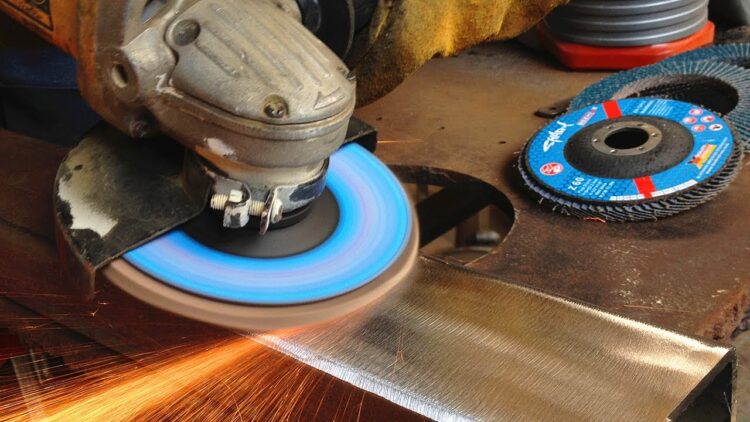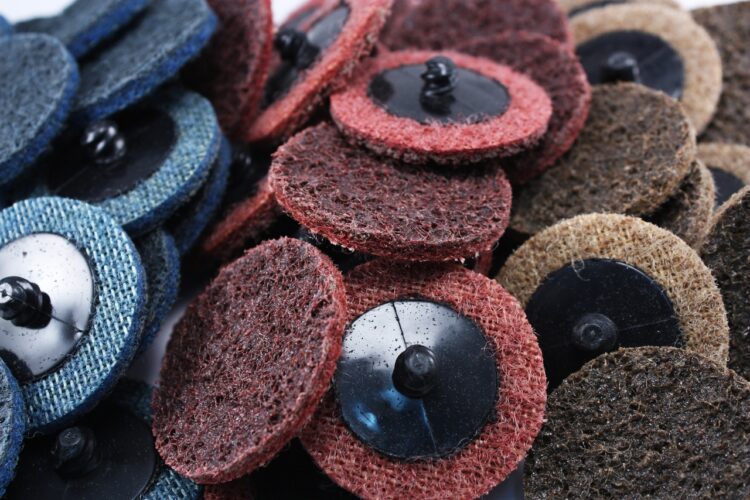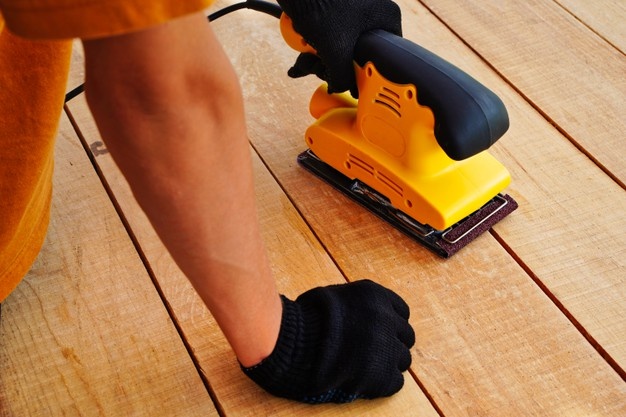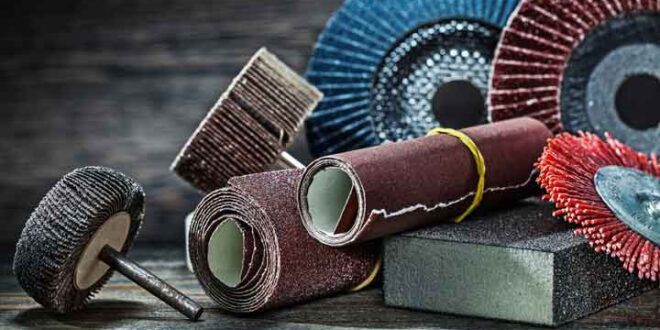Abrasives are hard materials that are used in domestic, industrial, and technological applications. They are mostly used to provide finishing or shaping to other workpieces. There are a lot of abrasives present in the market and finding the right type is absolutely essential.
Thus, it can be a bit difficult to find the right abrasive, especially when you do not have any knowledge of them. Below is an abrasive 101 guide to help you make your decisions. Read on to find out everything about different types of abrasives.
Cut-off wheels
You must have guessed it by the name only that cut-off wheels are made to cut things off. They are usually used with bolts, nails, separating a weld, etc. Cut-off wheels or grinding wheels/discs help in shaping other metals. They can be used to give them a new shape or remove certain portions.
Cut-off wheels are great for metals that are stubborn and do not cut off easily.
Flap discs

Flap discs or wheels give the appearance of a pinwheel. These discs are used to conform and shape metal. These discs are used in finishing works as they have densely layered abrasive cloth flaps. Consequently, it is easier for them to shape metals and provide a fine finish.
Flap discs can be seen being used in many areas, some of these are welding, agriculture, machining, heavy-duty equipment, as well as food production. While working with these discs, remember that they get more aggressive, the more pressure you put on them. While buying these discs, go for discs with more flaps as they last longer.
Wire wheels
Wire wheels have their own category as there are a lot of things for which they are used. You can use them to:
- Blend edges
- Remove rust
- Pain
- Scale
- Clean forged components
- Prep metal surfaces
There is a small difference between wire wheels and the usual abrasives; wire wheels do not remove any metal stock. Wire wheels mostly clean and change surface finish only. However, there are different types of wire wheels that you can use for different purposes.
Surface conditioning discs

Surface conditioning discs are also used for giving surfaces their final touch. These are handy tools that give the appearance of steel wool or pot scrubbers. They are used to remove components from the surface of metals. However, there is a little risk of damage while using these discs, so make sure you are careful.
These discs are made from open non-woven nylon material and then coated with abrasive grain to remove contaminants.
Looking for something different?
If you are still not satisfied with the list above and looking for something different, there is more. You can always go for regular sanding belts, sheets, and sanding rolls. In the end, what you buy depends upon the purpose of the abrasive. While at it, make sure to approach a reliable provider to select from a wide range of abrasives. You can click here to know more details and discuss your queries before making a purchase.
For instance, if you need to remove paint from any flat surface, you should go for sanding belts rather than sanding sheets. This is because sanding belts remove a lot of material quicker than sanding sheets.
Tips for getting the best results with abrasives

While working with abrasives, they are certain tips that can help you get the best results in cutting, grinding, or finishing. Below is a list of these tips:
- Identify your desired result: The first step to getting a result is identifying what you are looking for. A common mistake most people make is using the same abrasive for everything. However, that is not what you should do. The type of abrasive you need to work with depends upon your end results. So, sit back and think whether you want to do a finishing job or a removal job. Once you know that, you can go ahead and find the right type of abrasive.
- Know the material: The material of the object you are working on is another factor that needs to be considered. Different materials require different practices and textures. Working with improper abrasives can damage the object you are working with; the damage can require expensive repairs or it can be irreparable, too. Also, knowing the material will help you determine the appropriate bond for grinding or cutting wheels. It is recommended that you should go for a product that has a softer bond when you are conditioning harder materials. On the other hand, go for products with harder bonds when you are conditioning softer materials. This will allow you to maximize product life.
- Match the disc to the tool: Matching the disc to the tool helps in optimizing the use of the abrasive. This is because the efficiency of an abrasive depends upon the tool it is being used on. So, even if you have got the right abrasive for the job, the wrong disc will make it all futile as several problems will arise when you are working. Especially if you are using an abrasive for a grinding job, you need to be extra careful of the disc.
- Focus on the angle: The position of the tool matters a lot when you are using an abrasive. When grinding, make sure that your tool is at a slight angle to get optimal results. Also, remember that increasing the angle will provide more aggressive grinding. As a result, it will shorten the wheel life. On the other hand, reducing the angle lessens the pressure. Consequently, the wheel life is enhanced, however, it minimizes the cut-rate. Therefore, you need to focus on the angle and the position to make sure you are not putting extra pressure.
- Store equipment properly: Keeping your equipment properly can prevent them from getting damaged easily. Moreover, it also protects the utility of your equipment. How you need to store your abrasives depends upon their material. For instance, resin-bond abrasives need to be stored at ambient temperatures. On the other side, coated abrasives are less susceptible to change in temperature, so they usually do fine.
Along with these tips, make sure you are always practicing safety while working with abrasives. Make sure you have the proper gear and you are following all safety procedures.
 Hi Boox Popular Magazine 2024
Hi Boox Popular Magazine 2024



